- 0086-571-85302990
- sales@greenskybio.com
Is natural grape seed extract beneficial for diabetes? Are these all safe and applicable for diabetic patients?
2024-11-13

1. Introduction
Diabetes has emerged as a significant global health issue, affecting millions of people worldwide. With the increasing prevalence, there is a growing interest in exploring natural substances that could potentially manage or improve the condition. Grape Seed Extract, a product rich in polyphenols, has been the focus of numerous studies in relation to various health benefits. However, its role in diabetes and its safety for diabetic patients are still areas of active research and debate.
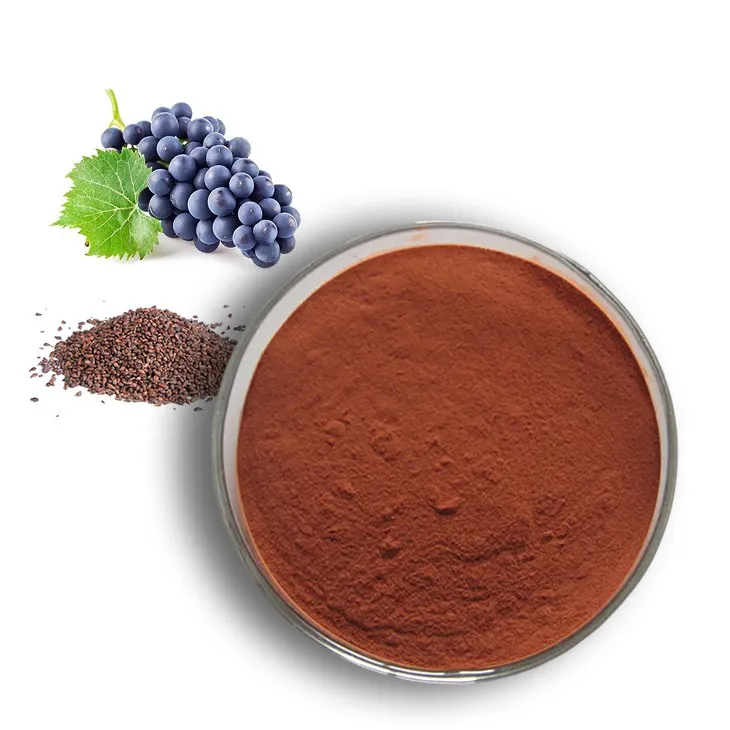
2. What is Grape Seed Extract?
Grape Seed Extract is derived from the seeds of grapes (Vitis vinifera). It is a rich source of bioactive compounds, particularly proanthocyanidins, which are a type of polyphenol. These compounds are known for their antioxidant properties, which help in neutralizing free radicals in the body. The antioxidant activity of grape seed extract is much higher than that of vitamins C and E, making it a potentially powerful agent in promoting health.
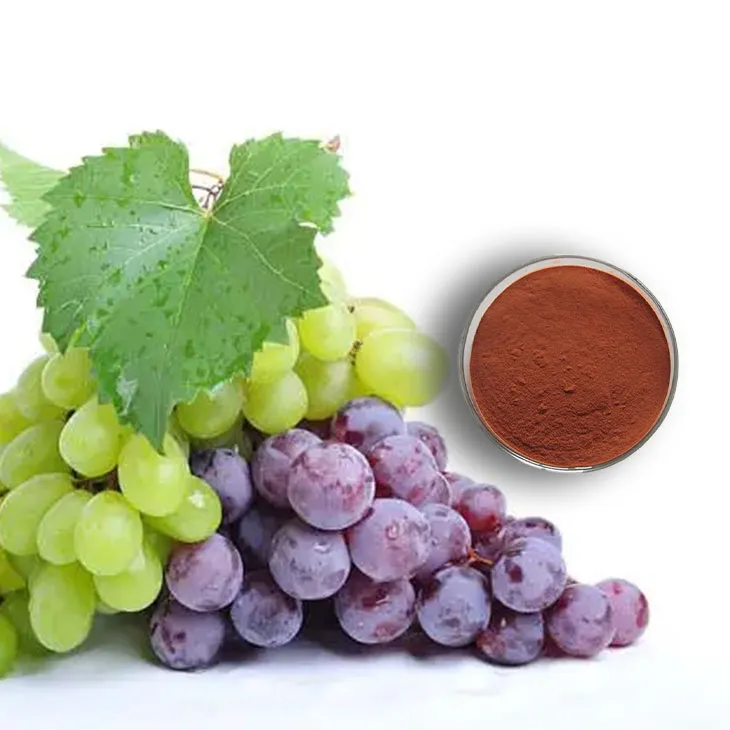
3. Scientific Research on Grape Seed Extract and Diabetes
3.1. Blood Glucose Regulation
Several animal studies have suggested that grape seed extract may have a positive impact on blood glucose levels. For example, in diabetic rats, supplementation with grape seed extract has been shown to reduce fasting blood glucose levels. The proposed mechanism involves the improvement of insulin sensitivity. Grape seed extract may enhance the action of insulin on cells, allowing for better uptake of glucose from the bloodstream into cells where it can be used for energy or stored. However, it is important to note that animal studies do not always directly translate to humans.
3.2. Insulin Resistance
Insulin resistance is a key factor in the development of type 2 diabetes. Some in - vitro studies have indicated that the polyphenols in grape seed extract can interact with molecules involved in insulin signaling pathways. This interaction may lead to the activation of certain proteins that improve insulin sensitivity, thus potentially reducing insulin resistance. Nevertheless, more research is needed to fully understand this mechanism and its significance in human diabetes.
3.3. Complications of Diabetes
Diabetic patients are at risk of developing various complications, such as cardiovascular disease, kidney damage, and nerve damage. There is some evidence to suggest that grape seed extract may play a role in preventing or mitigating these complications. For instance, its antioxidant properties may help protect the blood vessels from oxidative stress, which is often associated with the development of cardiovascular problems in diabetes. Additionally, it may have anti - inflammatory effects that could be beneficial in reducing tissue damage in organs such as the kidneys.
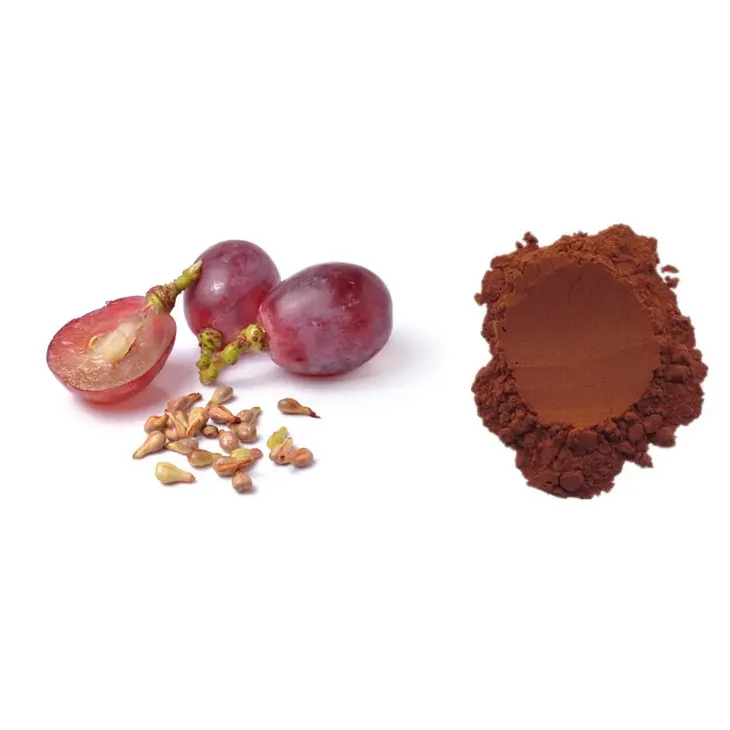
4. Potential Mechanisms of Action
4.1. Antioxidant Activity
As mentioned earlier, the high antioxidant activity of grape seed extract is a major factor in its potential benefits for diabetes. Oxidative stress is increased in diabetic patients due to factors such as high blood glucose levels and lipid peroxidation. Free radicals generated during oxidative stress can damage cells, including pancreatic beta - cells that produce insulin. By scavenging these free radicals, grape seed extract may help protect beta - cells and improve insulin production. Moreover, it can also protect other tissues from oxidative damage, reducing the risk of diabetes - related complications.
4.2. Anti - inflammatory Effects
Chronic inflammation is another characteristic of diabetes. Grape seed extract has been shown to have anti - inflammatory properties. It can inhibit the production of inflammatory cytokines, which are molecules involved in the inflammatory response. By reducing inflammation, it may improve insulin sensitivity and blood glucose control. Additionally, anti - inflammatory effects can also contribute to the prevention of diabetic complications, as inflammation plays a role in the development of tissue damage in organs such as the heart, kidneys, and nerves.
4.3. Modulation of Cellular Signaling Pathways
The polyphenols in grape seed extract can interact with various cellular signaling pathways. For example, they may influence the AMP - activated protein kinase (AMPK) pathway. Activation of the AMPK pathway is associated with improved energy metabolism and increased insulin sensitivity. By modulating this and other signaling pathways, grape seed extract may have a beneficial effect on glucose metabolism and overall diabetes management.
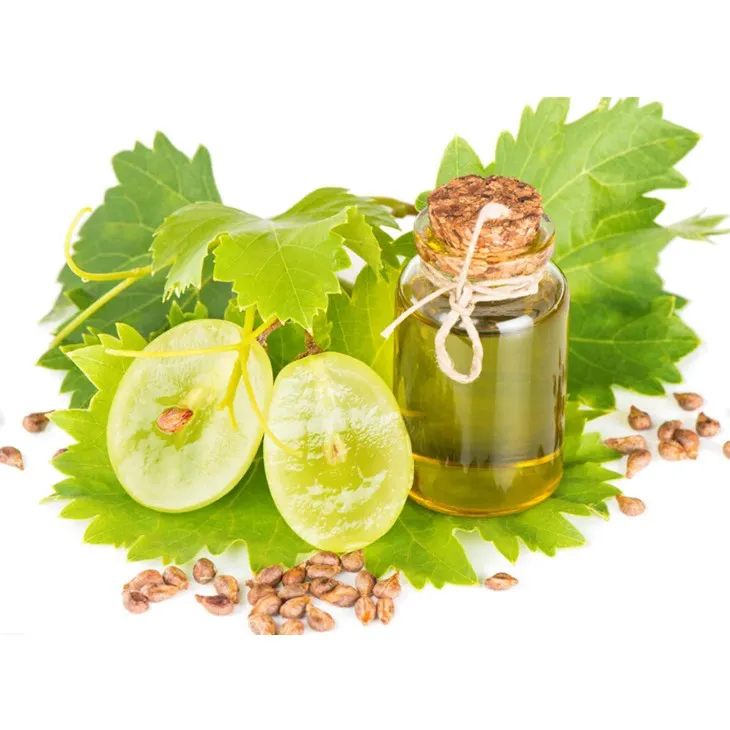
5. Safety of Grape Seed Extract for Diabetic Patients
5.1. General Safety Considerations
Grape seed extract is generally considered safe for most people when taken in appropriate doses. However, some individuals may experience mild side effects such as nausea, stomach upset, or allergic reactions. It is important to note that diabetic patients may be more sensitive to certain substances due to their underlying condition. Therefore, any new supplement, including grape seed extract, should be introduced gradually under the supervision of a healthcare provider.
5.2. Interaction with Medications
One of the major concerns regarding the use of grape seed extract by diabetic patients is its potential interaction with medications. Grape seed extract may interact with drugs used to manage diabetes, such as insulin and oral hypoglycemic agents. For example, it could potentiate the hypoglycemic effect of these drugs, leading to an increased risk of low blood sugar (hypoglycemia). Diabetic patients taking medications should inform their doctor if they plan to start taking grape seed extract to avoid any potential adverse interactions.
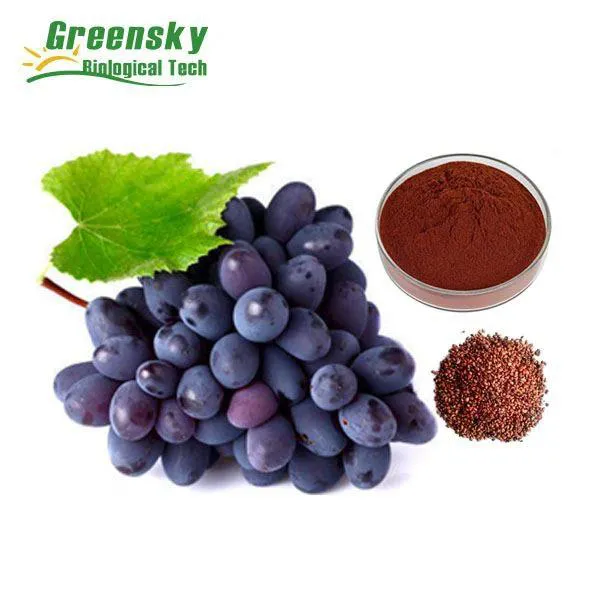
6. Factors Affecting the Efficacy and Safety
6.1. Quality and Purity of the Extract
The quality and purity of grape seed extract can vary significantly among different products. High - quality extracts with a standardized content of active compounds are more likely to produce consistent results. Poor - quality extracts may contain contaminants or have a lower concentration of beneficial polyphenols, which could affect their efficacy and safety. When choosing a grape seed extract supplement, it is advisable to look for products from reputable manufacturers with proper quality control measures.
6.2. Dosage
The appropriate dosage of grape seed extract for diabetic patients is still not well - defined. Different studies have used a variety of dosages, and the optimal amount may depend on factors such as the individual's body weight, the severity of diabetes, and the presence of other health conditions. Excessive dosages may increase the risk of side effects, while insufficient dosages may not produce the desired therapeutic effects.
6.3. Duration of Use
The duration of grape seed extract use may also play a role in its efficacy and safety. Long - term use may be required to achieve significant benefits, but it also increases the potential for side effects and interactions. Short - term studies may not fully capture all the effects of the extract, and more long - term research is needed to determine the optimal duration of use for diabetic patients.
7. Conclusion
In conclusion, while there is some evidence to suggest that Natural grape seed extract may have potential benefits for diabetes, more research is needed to fully understand its role. The potential mechanisms of action, including antioxidant activity, anti - inflammatory effects, and modulation of cellular signaling pathways, are promising areas of study. However, the safety of grape seed extract for diabetic patients, especially in terms of its interaction with medications, must be carefully considered. Factors such as the quality and purity of the extract, dosage, and duration of use also impact its efficacy and safety. Diabetic patients should consult their healthcare providers before starting any new supplement, including grape seed extract, to ensure that it is appropriate for their individual situation.
FAQ:
Q1: What is Natural grape seed extract?
Natural grape seed extract is a substance derived from grape seeds. It contains various bioactive compounds such as proanthocyanidins, flavonoids, and phenolic acids. These compounds are known for their antioxidant properties.
Q2: How might natural grape seed extract be beneficial for diabetes?
Some studies suggest that the antioxidant properties of grape seed extract may help in diabetes. It could potentially reduce oxidative stress, which is often elevated in diabetic patients. Oxidative stress can damage cells and tissues, and by reducing it, grape seed extract might play a role in improving insulin sensitivity and blood glucose control. Also, it may have anti - inflammatory effects that could be beneficial for diabetic complications.
Q3: Are there any studies supporting the use of grape seed extract for diabetes?
Yes, there are several studies. For example, some in - vitro and animal studies have shown positive effects of grape seed extract on blood glucose levels and insulin sensitivity. However, more high - quality human clinical trials are still needed to firmly establish its effectiveness in diabetes treatment.
Q4: Is natural grape seed extract safe for diabetic patients?
Generally, natural grape seed extract is considered safe for most people when taken in appropriate amounts. However, it may interact with certain medications that diabetic patients might be taking, such as blood - thinning medications. So, it is important for diabetic patients to consult their healthcare providers before starting to take grape seed extract.
Q5: How should diabetic patients take natural grape seed extract?
If a diabetic patient's healthcare provider approves its use, it should be taken as directed. Usually, it is available in supplement form. Dosage can vary depending on the product and the individual's health status. It is not advisable to exceed the recommended dosage without medical supervision.
Related literature
- The Potential Role of Grape Seed Extract in Diabetes Management"
- "Grape Seed Extract and Its Impact on Diabetic Complications: A Review"
- "Antioxidant Properties of Grape Seed Extract in the Context of Diabetes"
- ▶ Hesperidin
- ▶ citrus bioflavonoids
- ▶ plant extract
- ▶ lycopene
- ▶ Diosmin
- ▶ Grape seed extract
- ▶ Sea buckthorn Juice Powder
- ▶ Beetroot powder
- ▶ Hops Extract
- ▶ Artichoke Extract
- ▶ Reishi mushroom extract
- ▶ Astaxanthin
- ▶ Green Tea Extract
- ▶ Curcumin Extract
- ▶ Horse Chestnut Extract
- ▶ Other Problems
- ▶ Boswellia Serrata Extract
- ▶ Resveratrol Extract
- ▶ Marigold Extract
- ▶ Grape Leaf Extract
- ▶ blog3
-
High purity olive leaf extract
2024-11-13
-
Lavender oil extraction method
2024-11-13
-
100% organic virgin sea buckthorn fruit oil
2024-11-13
-
Lotus leaf extract powder factory in China
2024-11-13
-
China aged garlic extract supplier
2024-11-13
-
Deer antler extract powder manufacturer
2024-11-13
-
Saw palmetto extract vs whole herb
2024-11-13
-
Bilberry Extract
2024-11-13
-
Genistein
2024-11-13
-
Acai Berry Extract
2024-11-13
-
Kupilu Extract
2024-11-13
-
Propolis Extract Powder
2024-11-13
-
Alfalfa Meal
2024-11-13
-
Medicinal Marshmallow Extract
2024-11-13
-
Resveratrol extract
2024-11-13
-
Chasteberry Extract
2024-11-13
-
Moringa powder
2024-11-13





















